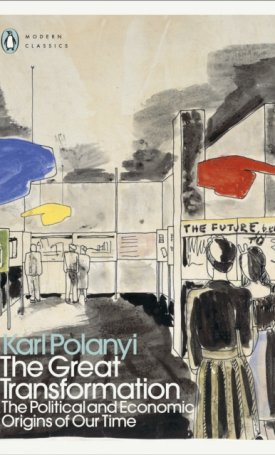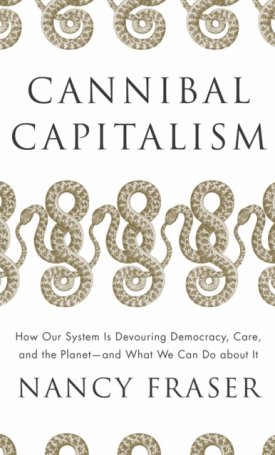Economics of Inequality, The
-10%
8 710 Ft
7 839 Ft
Előrendelés(Bejelentkezés szükséges)
A kedvezményes árak kizárólag a webshopunkon keresztül leadott megrendelésekre érvényesek!
Economics of Inequality, The
Borító: Kötött
ISBN: 9780674504806
Méret: 142*225
Tömeg: 282 g
Oldalszám: 160
Megjelenés éve: 2015
Piketty begins by explaining how inequality evolves and how economists measure it. In subsequent chapters, he explores variances in income and ownership of capital and the variety of policies used to reduce these gaps. Along the way, with characteristic clarity and precision, he introduces key ideas about the relationship between labor and capital, the effects of different systems of taxation, the distinction between “historical” and “political” time, the impact of education and technological change, the nature of capital markets, the role of unions, and apparent tensions between the pursuit of efficiency and the pursuit of fairness.ISBN: 9780674504806
Méret: 142*225
Tömeg: 282 g
Oldalszám: 160
Megjelenés éve: 2015
Succinct, accessible, and authoritative, this is the ideal place to start for those who want to understand the fundamental issues at the heart of one of the most pressing concerns in contemporary economics and politics.
Thomas Piketty—whose Capital in the Twenty-First Century pushed inequality to the forefront of public debate—wrote The Economics of Inequality as an introduction to the conceptual and factual background necessary for interpreting changes in economic inequality over time. This concise text has established itself as an indispensable guide for students and general readers in France, where it has been regularly updated and revised. Translated by Arthur Goldhammer, The Economics of Inequality now appears in English for the first time.
Table of contents
Note to the Reader
Introduction
1. The Measurement of Inequality and Its Evolution
Different Types of Income
Wage Inequality
International Comparisons
Income Inequality
International Comparisons
Inequalities in Time and Space
The Historical Evolution of Inequality
From Laws of History to Uncertainties
From Wages to Incomes
Inequality with Respect to Employment
2. Capital-Labor Inequality
The Share of Capital in Total Income
The Question of Capital/Labor Substitution
What Capital/Labor Substitution Means
Redistribution: “Fiscal” or “Direct”?
The Elasticity of Substitution between Capital and Labor
The Elasticity of Capital Supply
Are Capitalists and the Price System Necessary?
A Compromise between Short-Term and Long-Term Theories?
From Share of Value-Added to Household Income
What the Constancy of the Profit Share Tells Us
Who Pays Social Charges (Payroll Taxes)?
A Cobb-Douglas Production Function?
Historical Time versus Political Time?
Why Has the Profit Share Not Increased in the United States and United Kingdom?
The Dynamics of the Distribution of Capital
The Theory of Perfect Credit and Convergence
The Question of Convergence between Rich and Poor Countries
The Problem of Capital Market Imperfections
Possible Public Interventions
A Flat Tax on Capital?
3. Inequality of Labor Income
Inequality of Wages and Human Capital
The Explanatory Power of the Theory of Human Capital
Important Historical Inequalities
Supply and Demand
The Rise of Wage Inequality since 1970
Skill-Biased Technological Change?
Wage Inequality and Globalization
How to Redistribute Labor Income
A Major Political Issue
Where Does Human Capital Inequality Come From?
Efficient Inequality?
The Role of the Family and Educational Expenses
The Problem of Inefficient Segregation of Human Capital
Discrimination in the Labor Market
Affirmative Action versus Fiscal Transfers
The Social Determination of Wage Inequality
The Role of Unions in Setting Wages
Unions as Substitutes for Fiscal Redistribution?
Do Unions Contribute to Economic Efficiency?
The Monopsony Power of Employers
When Does a Higher Minimum Wage Increase the Level of Employment?
Efficiency Wages and Fair Wages
National Traditions and Wage Inequality
4. Instruments of Redistribution
Pure Redistribution
Average and Marginal Rates of Redistribution
The Absence of Redistribution between Workers
The U-Shaped Curve of Marginal Rates
Just Fiscal Redistribution
Do High Taxes Diminish Revenue?
The Earned Income Tax Credit in the United States
Fiscal Redistribution to Reduce Unemployment?
Negative Income Tax and Basic Income
Efficient Redistribution
Redistribution and Social Insurance
Efficient Social Insurance
Is Social Insurance an Instrument of Fiscal Redistribution?
Redistribution and Demand
References
Contents in Detail
Index






















